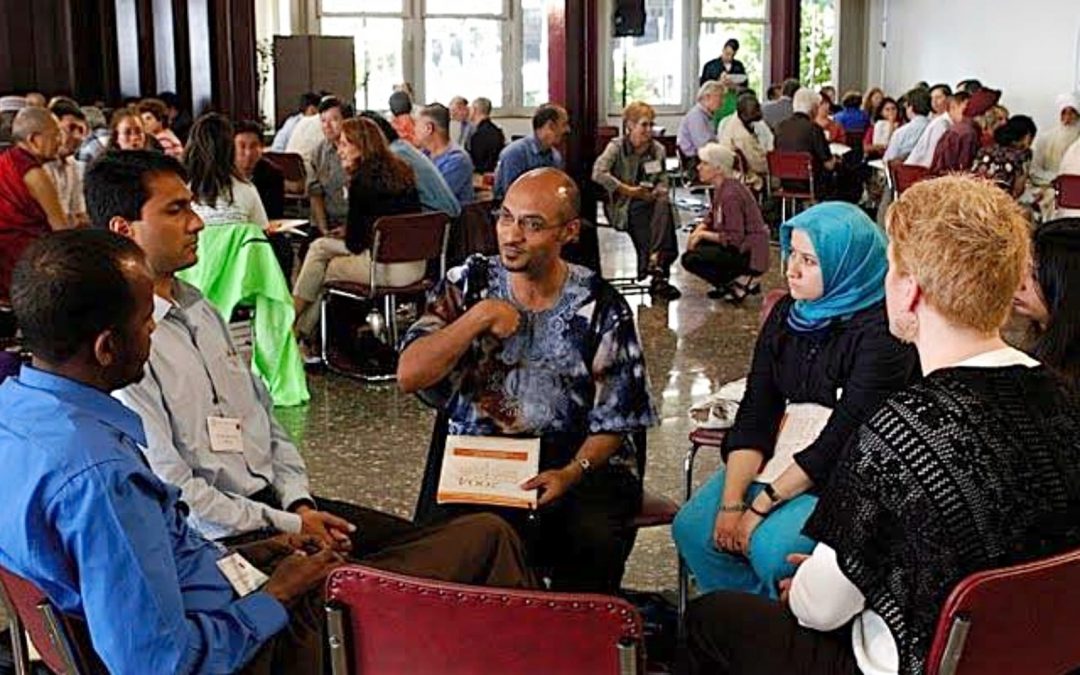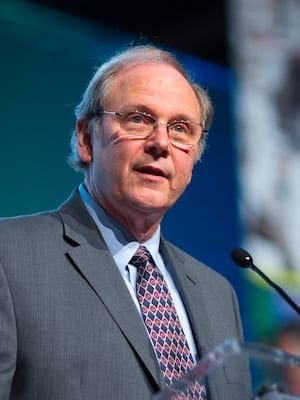Often cited as the oldest interfaith organization on the planet, the Parliament of the World’s Religions is credited with coining the phrase “interfaith dialogue.”
The original event highlighted the Columbian Exposition in Chicago in 1893. This 17-day festival was the first formal gathering of representatives of Eastern and Western spiritual traditions and is recognized today as the birth of the modern interfaith movement.
In 1987, at the Vedanta Society in Chicago, a group of monks and devotees of Swami Vivekananda dreamed of a centennial celebration of that conference.
Subsequently, the Parliament of the World’s Religions was incorporated as a nonprofit organization to extend the spirit and legacy of the 1893 gathering through global parliament events.
Its mission is to cultivate harmony among the world’s religious and spiritual communities and foster their engagement with the world and its guiding institutions in order to achieve a just, peaceful and sustainable world.
The parliament’s vision is of a different kind of world in which:
- Religious and spiritual communities live in harmony and contribute to a better world from their riches of wisdom and compassion.
- Religious and cultural fears and hatreds are replaced with understanding and respect.
- People everywhere come to know and care for their neighbors.
- The richness of human and religious diversity is woven into the fabric of communal, civil, societal and global life.
- The world’s most powerful and influential institutions move beyond narrow self-interest to realize common good.
- The Earth and all life are cherished, protected, healed and restored.
- All people commit to living out their highest values and aspirations.
The parliament promotes interreligious harmony, rather than unity. To seek unity among religions is to risk losing the unique, important character of individual spiritual traditions.
Interfaith harmony, however, is an attainable, highly desirable goal that respects, and is enriched by, the particularities of each tradition.
Moreover, within each tradition are the philosophical, theological and spiritual resources and perspectives that foster respectful, appreciative and cooperative relationships with the persons and communities of other belief systems.
Following the centenary 1993 parliament in Chicago, where the German Catholic theologian Hans Küng introduced a “Global Ethic” to which all religions could subscribe, there have been subsequent international parliaments in Cape Town, South Africa (1999); Barcelona, Spain (2004); Melbourne, Australia (2009), and Salt Lake City (2015).
The average attendance at these multi-day conferences has been 8,000 persons.
Plenary sessions have included presentations by Nobel laureates like Archbishop Desmond Tutu and Ireland’s Mairead Maguire; spiritual leaders like the Dalai Lama of Tibetan Buddhism, Sojourner founder Jim Wallis and Sheikh Saleh Abdullah bin Humaid, the Grand Imam of Mecca; political figures like Nelson Mandela and President Jimmy Carter; academics like Karen Armstrong of Great Britain and primatologist Dr. Jane Goodall; and international specialists like Jim Young Kim, the president of the World Bank; climate change activist Al Gore; and Wei-Ming Tu, the premier Confucian philosopher on the planet.
Supplementing these plenaries have been hundreds of breakout sessions – opportunities for grassroots leaders, academics, business executives, religious luminaries and youth to offer solutions to global problems.
As chair of the parliament, and a Cooperative Baptist, it’s a privilege to work with an American Baptist executive director and a trustee board of gifted, religiously diverse thinkers and practitioners.
In my travels – from Phoenix to Vienna, Guadalajara to New York City, Seattle to Marrakesh, and Jakarta to Atlanta – I have seen how face-to-face encounters with the “religious other” enable persons to build friendships that celebrate differences and that refuse to allow stereotypical misinformation to trump compassion and mutual respect.
The seventh convening of the parliament will be held Nov. 1-7 in Toronto. Three critical issues – climate change; global injustice; and hate, violence and war – and three important constituencies – indigenous peoples, women and the next generation of emerging leaders – will be addressed.
During the week, 1,600 speakers and 1,000 breakout sessions will provide lectures, workshops, religious ceremonies, concerts, films and personal narratives for the 8,000 expected participants from 70 countries and 50 religions.
Come to Toronto to enjoy music and dance as varied as Japanese taiko drums, Balinese ballet, Mexican mariachi, African choral music, Australian digeridoo, Turkish stringed instruments and Tibetan monks chanting multiple harmonic notes from a single throat.
Come for the art and photography exhibits, the scores of craft and educational booths in the exhibit hall and the dozens of rituals from religions other than your own.
Come because of the unguarded moments when you sit down with someone from another country or religion, sharing your stories and discovering that your life dreams are so similar.
Most of all, come to affirm the truth famously spoken by Hans Küng: “There will be no peace among the nations without peace among the religions, [and n]o peace among the religions without dialogue between the religions.”
Go to ParliamentOfReligions.org and sign up to receive our newsletters and to register for the parliament.
Editor’s note: EthicsDaily.com executive director Mitch Randall will attend this year’s parliament. A series focused on interfaith engagement will be published on EthicsDaily.com in mid-November following the parliament’s seventh convening.


